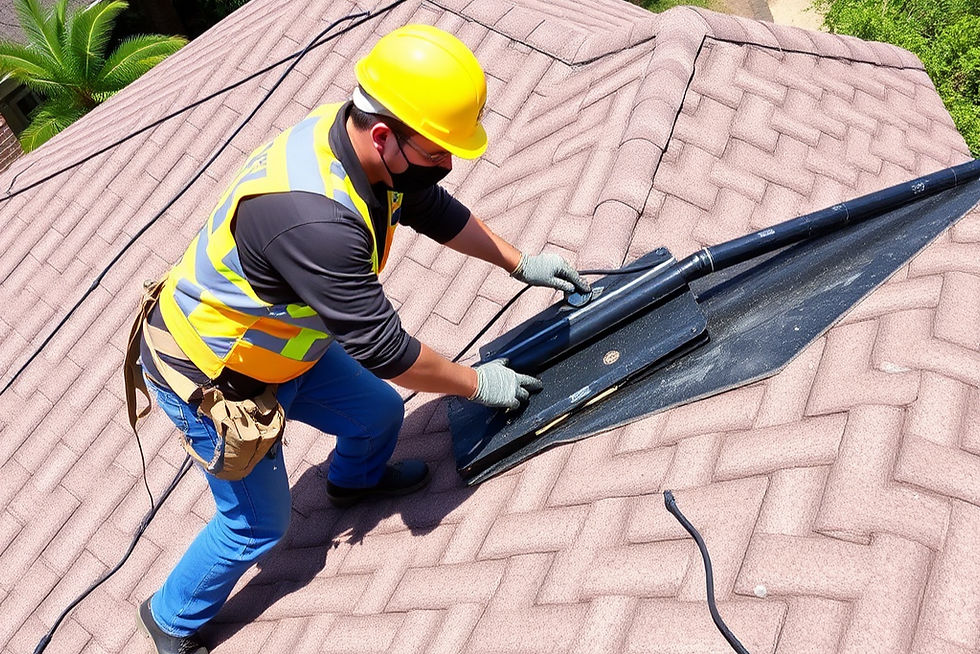Decoding the Tools of the Trade: A Comprehensive Guide to Electricians Tools
- Molly Crowe
- Nov 12, 2024
- 3 min read
Updated: Nov 22, 2025
The world of an electrician can be complex and fascinating, a blend of technical know-how, mastery of tools, and finesse of handwork. But to the untrained eye, the intricate wires, plugs, and switches might seem as mystical as a magician's box of tricks. Have you ever wondered what that clamp-looking object is called? Or what's the purpose of that needle-like tool your local sparky swears by? Are you an amateur DIY enthusiast aiming to understand more about the arsenal of an electricians in essendon? Welcome to the world 'Decoding the Tools of the Trade: A Closer Look at What Electricians Use'- a comprehensive guide to an electrician's tools. Breaking down the mystery, one tool at a time!

Why Understanding Electrician’s Tools Matters
Think of your home. Every plug, switch, and lighting fixture you see owes its functionality to the skilled hands of an electrician and the tools they wield. But what if one day you are faced with a minor repair, a loose wire perhaps? Understanding these tools can help you gauge the complexity of the repair job, know when to call for professional help, and appreciate the skill set that goes into creating safe spaces. Furthermore, a key to home improvement is equipping yourself with a basic understanding of tasks and potential roadblocks. Fear not, our guide is here to help!
What's in an Electrician's Toolbox?
Every electrician comes bearing a toolbox, a Pandora's box of items each playing its unique role. The most common ones include the pliers, wire strippers, multimeters, voltage testers, tape measures, circuit finders, flashlights and many more. Each tool is specially designed for a specific task. For example, the multimeter, an essential tool for any electrician, is used for measuring several key aspects of electric circuits including their amplitude, resistance and capacity. Let's dig deeper and get familiar with these mystical tools.
When To Use Which Tool?
Understanding the purpose of the tools in an electrician's kit could be your DIY savior and your step forward in understanding electrical work. Pliers for gripping, pulling and bending wires or fish tapes for pulling wires through walls and ceilings. Nut drivers for working on switch plates and socket covers and circuit finders for locating circuit breakers. Knowing when to use what tool is the key to efficient and safe electrical work. It helps avoid unnecessary accidents and provides a bird’s eye view of what your repair or renovation project might entail.
Pros And Cons Of DIY Electrical Work
Given the wealth of online resources today, DIY electrical tasks can seem enticing. They save money and impart a sense of self-satisfaction. However, they come with their own set of pros and cons. On the upside, understanding basic electrical work can help you troubleshoot minor issues. On the downside, lack of professional training could lead to mistakes with potentially dangerous outcomes, including fire hazards and electrocution risk. It’s hence crucial to know your strengths and limitations, and when to call in the professionals.
On Artisan Tools and Technological Advancements
In the world of hardware and electric work, tradition collides with technology. We've natural fibre fish tapes for minimal friction and smart voltage testers that don’t need a physical connection to test voltage. Such technological leaps redefine the scope of an electrician’s potential, enabling faster work, increased safety, and enhanced precision. But it's equally interesting to see how traditional tools like pliers and screwdrivers have stood their ground, proving irreplaceable even today.

Conclusion
In summary, familiarity with an electricians tool kit can be an empowering undertaking. It equips us with a fundamental understanding of our homes' complex electrical systems and contributes to our overarching home improvement knowledge. From the humble pliers to the multi-tool tester with its flashing lights and beeping sounds, each has a role in creating and maintaining the electrical network that powers our lives. This guide is not an endorsement of DIY electrical work but an appreciation of the electrician’s trade, a salute to their skills, and a call to comprehend the complexity and criticality of their role. Remember, knowledge is power, but when it comes to electrical work, safety should always come first.
To know more information about us, then you can go through the details below:
Name: Day & Night Electrical
Address: Melbourne 3000 Victoria Australia
Phone Number: 1300 138 332
Email Id: info@daynighttradesolutions.com.au





Comments